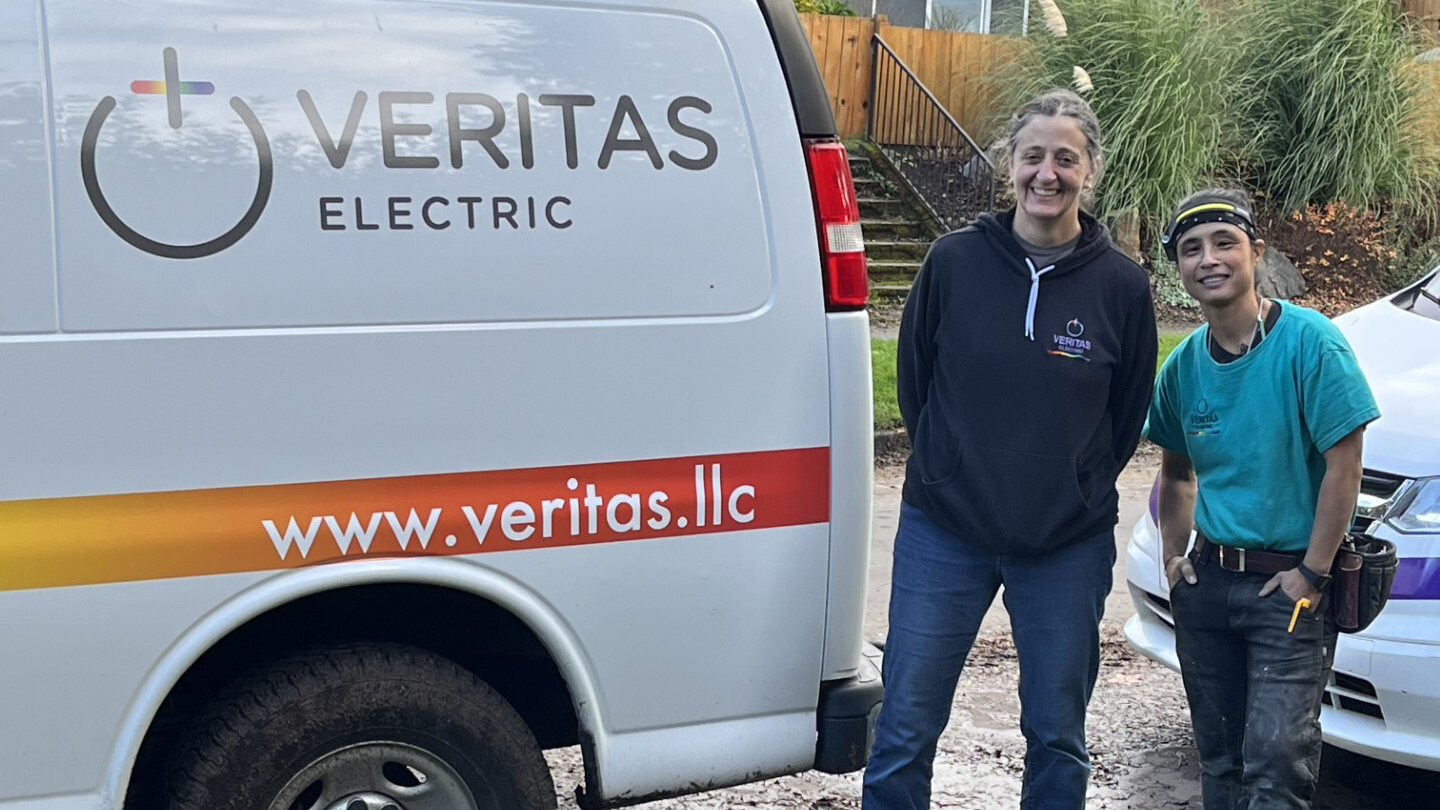Case Studies
Driving Diversity in the Clean Energy Sector with Emerald Cities Collaborative

Grantees are the heart of The Russell Family Foundation’s (TRFF) mission, driving meaningful change in our communities, building a just and sustainable future. Through our Catalytic Climate Finance Program (CCF), we provide grants to organizations dedicated to addressing the climate crisis while empowering marginalized communities. Allocating grant capital is one philanthropic tool for advancing equitable climate solutions across every aspect of our work, which also includes investment, collaboration and convening.
Advancing high-road development across the US
One of our grant partners is Emerald Cities Collaborative (ECC), a national nonprofit network of organizations working together to advance a sustainable environment while creating sustainable, just and inclusive economies with opportunities for all through “the high road.” High-road development involves a family of strategies for human development under competitive market conditions that treat shared prosperity, environmental sustainability, and efficient democracy as necessary complements, not tradeoffs.
ECC collaborates to develop energy, green infrastructure, and other sustainable development projects that contribute to the resilience of our metropolitan regions, but also ensure an equity stake for low-income communities of color in the green economy. This includes developing the economic infrastructure for family-supporting wages and career paths for residents of such communities, as well as contracting opportunities for women, Black, Indigenous, and People of Color (BIPOC) and other historically excluded businesses.
TRFF funding supports ECC’s collaborative climate justice work, an area that is core to its mission. This includes their Electrical Pathways program that provides pre-apprenticeship opportunities for historically excluded community members in the Puget Sound Region of Washington State, and similar programs. To help share the important stories of the diverse participants in programs like this in the clean energy economy, the ECC team took part in “Storytellers for Change” training.
As part of this storytelling, Monica Guevara, Program Manager of Economic Inclusion, Northwest, at ECC, spoke to Deborah McGowan from Seattle. Deborah participated in ECC’s E-Contractor Academy, a seven-week training program where small, WMDBE contractors learn to perform energy efficiency and renewable energy retrofit projects, along with grant support from ECC.
Deborah’s story: growing a woman-owned electrical firm in Seattle
Deborah has always loved solving problems and the challenge of constantly learning. After struggling early in her career, she discovered the potential for electricians within the construction sector and took up an apprenticeship to gain her license as an electrician. Electricians are at the forefront of the clean energy transition, doing much of the electrification and energy efficiency work needed to decarbonize buildings. An electrician in Washington State can earn over $88,000 annually, but only around 2% of electricians are currently women.
In 2019, to support her growth and career advancement, Deborah began her own contracting business with a friend and faced the challenge of giving up a steady paycheck head on. While the business partnership did not last, Deborah carried on as business owner of Veritas Electric, a residential and small commercial electrical firm based in Seattle. Deborah explained to Monica,“Often people choose my company based on being a woman-owned firm, but they keep coming back to me because of the quality of the work.”
As a growing firm, Deborah faced two challenges common to many in the construction trades: funding and talent acquisition. She was getting more demand for her services, necessitating additional staffing, but finding and funding new staff was overwhelming for her small business. Deborah reached out to the Emerald Cities E-Contractor Network. She had already participated in ECC’s E-Contractor Academy and was eligible for an ECC grant. Pairing the grant funds with a King County JumpStart Program subsidy ensured she had enough time to train a new hire. She was paired with J’Brea Napoles, a recent ECC HVAC Academy graduate, who she then hired full-time.
As the business owner, Deborah has set the tone and company culture to be welcoming and inviting to women in a field which has traditionally been male-dominated. Deborah shared with Monica, “One of the most rewarding aspects of being a business owner is teaching an apprentice a new skill and seeing them grow.” Her mission is to perform quality electrical work to ensure safe and efficient homes and invite more women into the field. Her resourcefulness and connection to programs such as the ones run by ECC has led to another woman joining the electrical field and to growth within a woman-owned firm. The training, support services, grants and subsidies were all essential to making this story a reality and supporting diversity within such an important field.
Empowering equitable climate solutions into the future
ECC actively seeks partners that support this ecosystem of empowering diversity in the clean energy and building trades. Providing funding to networks like ECC empowers equitable investments in disadvantaged communities and businesses throughout the US, and in the infrastructure that renewable power such as wind or solar requires. It also helps communities adapt to climate change impacts by involving them from the start of projects. As Steve Gelb, Regional Director, Northwest, ECC explains, “finance is particularly important to support the growth of small women and minority owned businesses who are under-represented in the clean energy industry. They are often hampered by the lack of multi-generational wealth in their communities because of past injustices.”
TRFF is proud to work with organizations like ECC that center and uplift communities and workers, ensuring no one is left behind as the world addresses the urgent climate crisis.
For information on all of TRFF’s grantees, please browse our grants.